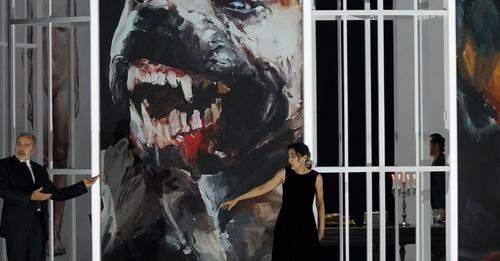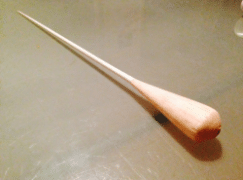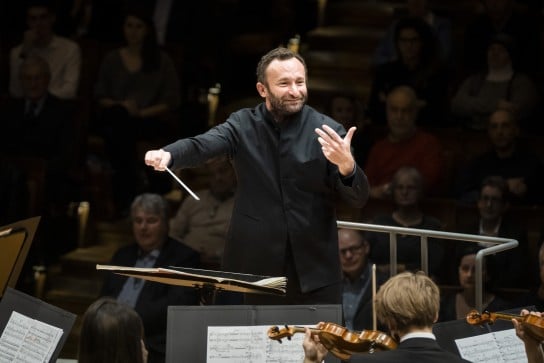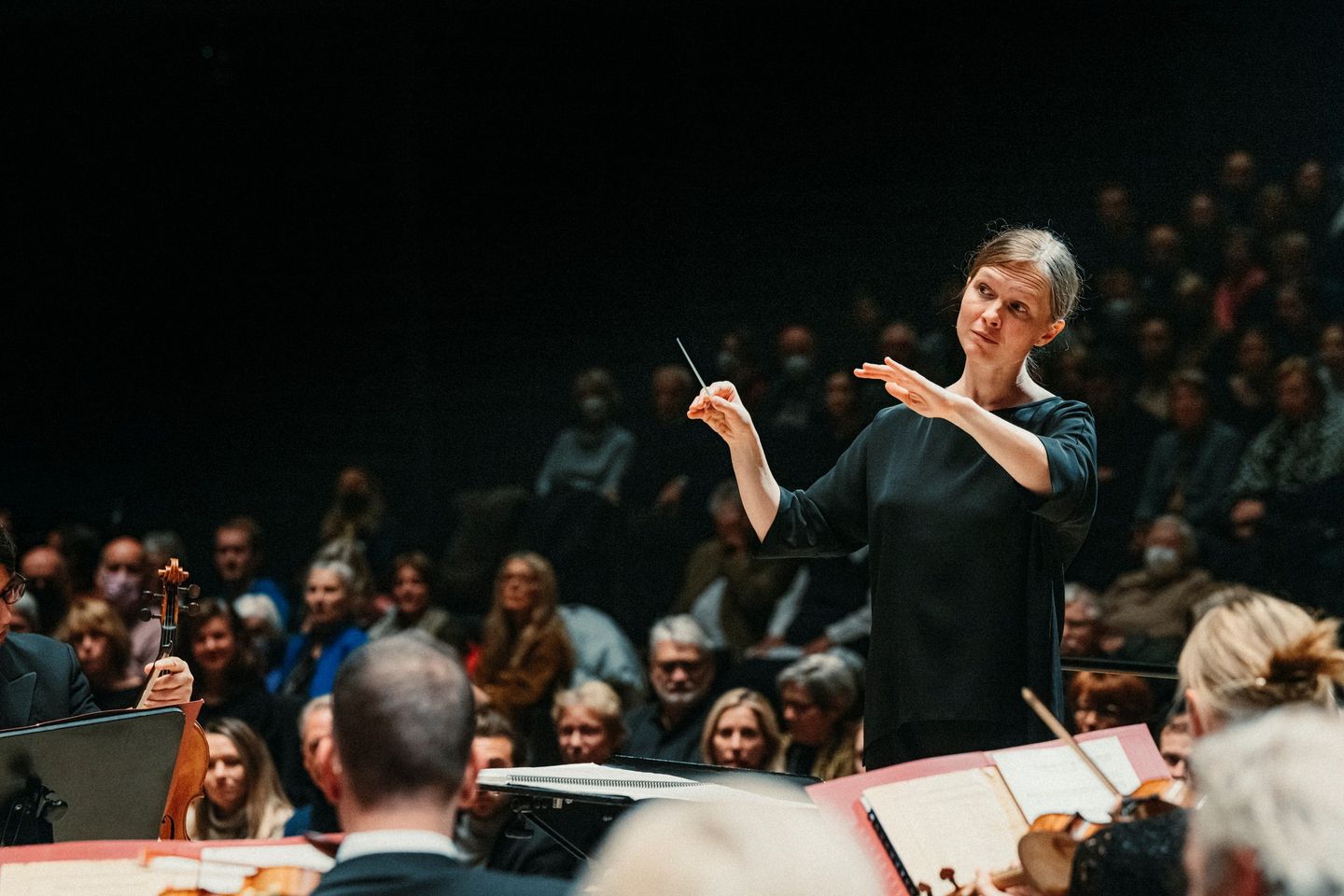Alagnas quit Tosca over alleged obscenity
NewsThe tenor Roberto Alagna and his soprano wife Aleksandra Kurzak have pulled out of next January’s Tosca in Barcelona, declaring the production ‘obscene’.
The staging, by Raffael R. Villalobos, previously seen in Brussels and Montepellier, makes the Catholic church the villain of the piece.
The Alagnas ‘felt that they were unable to play their roles in this production and ultimately decided to give up on the project.’
Good for them.






At least they can afford to pull out, but good for them and make a stand against these idiotic stage directors cum producers who think they are God anyhow!
Well said 🙂
Well done, Roberto and Aleksandra! Striking a blow for faithful Art.
Kurzak was a terrible Tosca at the Met anyway… her obsession to step into shoes way too big for her comes with a cost.
Musetta is the most and only suitable role for her nowadays (currently she is singing it at the Met)
She was magnificent as Tosca. Her Vissi d’arte moved me to tears. This comment was unnecessary, unless you were going to Barcelona. Just one opinion
Good for them! They are both well enough established not to need to appear in productions that they are not comfortable with. I wish more established artists would follow their example.
If this production is still the one they had last year, it’s just the typical piece of cheap trash we get these days seemingly everywhere, complete with ‘everything goes’ costumes, difficult sets so singers get a fair chance of breaking a leg, and the inevitable naked woman wandering on stage in all acts; also the inevitable near-rape on stage, regietheater directors apparently have a filter in their brain for uncomfortable lines like Scarpia’s ‘Violenza non ti farò. Sei libera.’ By the time he had arrived at the third act the ‘director’ had switched from black mass to something looking like 2001 A Space Odyssey sans Kubrick’s ideas and also sans his funds.
I have seen the production, it doesn’t have a naked woman wondering around or a near rape on stage. It does have naked men which adds a kind of shock to the Scarpia scenes that must have been felt by the original audience but now no longer is usually by modern audiences. It isn’t to everyone’s taste but you appear to be commenting on a different production to the one I saw and referred to here…
There are naked men too, but there’s also the naked woman wandering around in all acts. Hard to miss her as she is up there all the time Cavaradossi sings E lucevan le stelle, and next to Tosca when she jumps off what ought to have been a parapet but isn’t. The church is all black and the children clad in robes of a very intense red. This is the production Liceu had during Covid (co-production with La Maestranza), I clearly remember some members of the cast wearing masks.
‘you appear to be commenting on a different production to the one I saw and referred to here’
If I am allowed to point out the obvious to you, it’s _you_ who comments on a different production that the one I mentioned in my first comment, because you replied to my comment, not I to yours. Please also note I began my comment with the disclaimer ‘If this production is still the one they had last year’. For more on the production Alagna canceled, read my ‘correction’ comment.
Correction to my previous comment: According to the article I link to at the end of my comment, the production Alagna & Kurzak canceled is not the current production, it’s a brand new production opening in seven months from now. The current production is dismal enough but the future production takes the gratuitous obscenity one step further, or perhaps ten steps. The new production is inspired by ‘Salò o le 120 giornate di Sodoma’ and premiered last year at La Monnaie. Interesting enough, when Alagna canceled, the Liceu offered ‘some changes’. (Which Alagna refused with the justification that the production would have to be completely changed – after all, the production is about Sodoma, not about Tosca, and ‘some’ changes aren’t enough.) So this is what it takes? Directors are allowed to run wild, and if nobody protests, singers and audiences alike are in for as much obscenity the stage director could think of? But if someone protests, then ‘some’ changes are offered? Why couldn’t the Liceu management see the necessity of changes from the start (sans ‘some’), and allow Villalobos to run wild on taxpayer money?
P.S. The La Monnaie tidbid made me recall a few SD commenters who used to be proud of La Monnaie’s ‘ability’ to sell full house, according to them. I wonder to what type of audiences? At the time I thought it’s the politicians and their huge entourage who keep the house afloat. This may still be so for all I know, but I wonder how La Monnaie’s new Tosca sells, and to who? It isn’t too far fetched to suppose it’s selling to audiences who aren’t content anymore to watch obscenity on screen, they want Sodoma live, enacted by human beings in front of them, human beings paid for this. This type of behavior used to have a name.
https://operawire.com/roberto-alagna-opens-up-about-gran-teatre-del-liceu-cancelation/
Good! About time the artists stood up for artistic standards.
Ridiculous piece of casting. Neither of them should be anywhere near a production of Tosca.
And they are right! Young singers, in order to have a career at all, have to submit to all this, but Alagna and Kurzak – especially Alagna, a famous singer at the end of his career, can finally protest against the humiliation of singers – and what is opera without singers! Kaufmann, another famous singer nearing the end of his career, who has nothing left to lose, can also speak out freely on this subject – but only now! I remember how – back in 2011, when Kaufmann tried to discuss with the director during “Faust” rehearsals at the MET, he was summoned to the office
and told to shut up and do as he was told. When he was already a famous opera star! (perhaps it was then that he fell out of favor with Gelb and the “Kaufmann always cancels” campaign began – at his FIRST ever cancellation at the MET four months later). Anyway – bravo Roberto, brava Alexandra!
Bravo, finally somebody says: ENOUGH!!!!!!!
YES! Let Opera be and stop making it “relevant”! Write your own, don’t butcher someone else’s work of art.
I agree with the majority of the views expressed here supporting the couple for walking on a distasteful production. Sure, they can afford it more than younger singers at the start of their careers: not just financially but in terms of what status their careers have earned them. The latter gives them a platform to take a stand and, unlike some, they did.
You mean more obscene than 1 attempted rape, 1 homicide, 1 execution, and 1 suicide?
Not forgetting the torture.
There’s no attempted rape. Familiarizing yourself with the libretto not one of your strengths? This is what Scarpia sings ‘Violenza non ti farò. Sei libera.’ There isn’t anything obscene in _dealing_ with homicide, execution and suicide in art (or in a court of law for that matter), the obscenity is in the _how_ you deal with these sensitive issues. Puccini and his librettist dealt sensitively. Regietheater wallows in obscenity. There’s also obscenity in hijacking someone else’s work, a popular work, and misuse it for your own pet obscenities of which there’s no mention in the plot no matter how hard one looks.
Riiiight, Harvey Weinstein never used violence either. Think.
Instead of the libretto, why not simply cite early 19th century Italian law and practice as your justification why rape is never “rape” even when there is rape.
In the next production of Tosca at your local opera, you should try out as an extra, you’d make an ideal toadie for Scarpia.
Spare me your metoo virtue signaling. The libretto makes it very clear Scarpia doesn’t attempt anything physical. Scarpia is a psycho, a sadist, the chief of police. What he does to Tosca is mental torture. It’s humiliation of a different sort – putting her in a situation to betray another human being – Angelotti – to save the man she loves, then sell herself ‘willingly’ to Scarpia to save Cavaradossi a second time, all for nothing as he intends to dupe her and have Cavaradossi shot anyway – this is the cherry on the humiliation cake for him. Unfortunately he succeeds with the first and the last. If you haven’t understood this, you haven’t understood Scarpia psychology and go to the theater just for whatever dirty the stage director can put on to feed your confirmation bias. Next time you feel like mentioning Harvey Weinstein, remember Tosca is about Scarpia. Different sort of scum, but you people enamoured of just one type of scum want to see that type everywhere. ‘Vindication’ in arts is no substitute for justice, aleph. Justice happens in a court of law, and this where Harvey Weinstein got his comeuppance.
Scarpia was not obscene, he just incarnated at least 6 of the 7 cardinal sins of the Roman Catholic Church. You have no problem watching that on stage, but God forbid you have to watch a bit of obscenity.
Perhaps you should use your own brains next time you comment, instead of peddling whatever platitude you have read in the internet. There’s no obscenity in the Tosca libretto. What there is, it’s a psycho strutting on stage, but he is too enamoured of his brains, his cunning, and his lineage (he’s the police chief and a baron) to attempt anything physical. It’s extraordinary how lazy and brainwashed people are – too lazy to read the original libretto (long), and to eager to believe whatever message feeds their confirmation bias (short).
*anything physical: In the sense so dear to directors enamoured of in-your-face-violence & in-your-face-dirty. Scarpia intends to have non-consensual sex with Tosca, no doubt, but he won’t lay a finger on her until she comes to him on her own ‘will’ , read forced by the circumstances he has woven around her (‘Violenza non ti farò. Sei libera.’) This is much more satisfying to him, to know she loathes him but will submit nevertheless because he had manoeuvred her into a dead-end situation. He wants to have his cake and eat it too – satisfaction for his manipulative brains, and sexual satisfaction. This is also why the climax of the second act is Tosca murdering Scarpia – it’s unexpected – she is mentally tormented and falling to pieces, he is cool like a cucumber, but for all those manipulative brains of his, he hasn’t anticipate something so simple like grabbing a knife and sticking it into him in desperation. One of the morals of the story is that his scheme was too complex, and perverted intellects are sometimes unable to see simple solutions. But the complexity of his situation is all lost on aleph and Mary, who want to see just the dirty, the more graphic, the better. aleph and Mary, the artform called opera ain’t about the dirty, but plenty of other forms of entertainment centered around presenting filth, though I wouldn’t call them art forms. I’m told they’re cheaper than an opera ticket.
You *are* a different guest replying to the previous commenter who identified herself or himself as guest. This is why I think that the generic identification as “guest”, although allowed, is confusing! Having said that there could be more than one Davis pianist competing haha
I tend to agree with you but are you the same “guest” that wrote earlier in this comments section or a different one?
Unfortunately Fabiano and Agresta will have to deal with this garbage. One would think Fabiano has enough of a reputation and bookings to avoid this dreck. And I don’t think there is any blowback from turning down a role when offered this late.
It isn’t offered late, the performance is scheduled for January next year. Some singers may be booked in advance one or even two years but even they have periods of rest. If they get an offer for a performance in one of their rest period, they might take it, if it is a role they are familiar with. I hope nobody takes this garbage though, to teach the house a much needed lesson.
Kurzack is used to trash productions (and poor vocal performances):
https://youtu.be/QfAMld8OjLg
So it was definitely Alagna’s call
WHY are opera houses having trouble filling their seats? Mmm. Could the kind of intellectual onanism evident in this Tosca be part of the reason?
I hate to spoil it for the Regisseur of this Tosca, but even the Zeffirelli production at the Met, ‘old-fashioned’ to some, made it quite obvious that the Catholic church had power and influenced the individual characters. You just had to watch, observe, have insight, think, listen to the lines being sung, observe the settings, … and use your imagination. GASP!
Interesting… most comments here decry the rape, murder and other assorted violence on stage in this opera… according to my memory it’s such routine violence in operas that brings the audience to tears during the resulting magnificent musical scenes… since the very beginning of the art form, it is such violence that often instructs the continued plot. It’s just my humble opinion that an opera about a bland family picnic or orderly church service will not result in the magnificent arias that we all know & love. I say “grow up” and be adults… this is an art form, not a political camp meeting for revisionistas.
Thank you.
And we shouldn’t forget the violence issue is dealt sensitively with by the librettist and composer. The worst we may see is repertoire opera is a character running a sword or a bullet through another character, or through himself. To complain about this is ridiculous, considering what the movie and video games industry feeds the population these days. Somehow nobody complains of zombies and the like?
Back to Tosca, the torture is off stage, the rape non-existent (read the libretto folks), there isn’t anything visually distressing about a jump off the parapet particularly when we know she’s jumping on a trampoline (the soprano cracking on the C preceding the jump might be distressing to the ear 😉 – or is it a B? I forgot.) What’s left is Tosca knifing Scarpia, and the firing squadron. The folks who can’t deal with this shouldn’t watch any action or war movies either. All the aforementioned events can be presented in an obscene manner by a director who is obsessed with obscenity, but the events themselves aren’t obscene. In the Met’s last Lucia di Lammermoor, Lucia was drenched in blood in the Mad Scene. I mean literally drenched, the stuff was everywhere, dress, skin, and hair, sticky and dripping off her. Arturo too was drenched, complete with bed clothes. It looked like she had sacrificed half a dozen pigs and bled them dry, not killed Arturo with – surprise – a small fire extinguisher. To top all this gore she was followed around by half a dozen zombie-like bloody Arturo doubles, the ensemble sporting great diversity in body type and skin color, as far as I could tell from what little skin was left unbloodied. No one shall accuse the Met their diversity officer isn’t doing his or her duty. This is what I call obscene dealing with the event (the gore, not the diversity). Yet somehow nobody cried bloody murder (pun intended) at this staging? We aren’t even supposed to see the dead Arturo according to libretto, and the dramatic climax of the scene isn’t the violent event we aren’t supposed to see, it’s Lucia’s state of mind. Yet Stone decided he knows better than Donizetti.
Didn’t they read the contract and know what they were getting themselves into? Tosca is so familiar who wants to see another boring ‘beautiful’ traditional staging?
I want to see “another boring beautiful traditional production”, definitely, every single time.
Roberto Alagna: “We had signed a contract with Aleksandra for the old production of Tosca, only to learn of the change of production when the new season was announced.”
I was about to write the same. Here the link for those interested https://operawire.com/roberto-alagna-opens-up-about-gran-teatre-del-liceu-cancelation/
Yes, when it comes to opera we should always have Zerlina milk a cow, lengthy passages of singing with tuberculosis, lots of Lederhosen and Dirndls in Freischutz, a guy with horns and a pointed tail in Mefistofele, plenty of powdered wigs throughout the repertoire, and lots of old folks and blue-haired ladies in the public. Include very expensive tickets, byzantine administrations, opera singers treated like dirt, and orchestra musicians bored out of their minds. And finally, create a system of elite privileges for the bigger donors to turn the whole thing into a cultural country club for the wealthy. Surely no need for any innovation in the opera world.
Have you seen it? I did. Pray, what’s innovative in it? I bet you haven’t seen it but feel like pontificating. If I am wrong let’s discuss it. My bet is you won’t reply at all, or will reply with an whataboutism.
My comment is about the usual ranting about Regietheater instead of intelligent and differentiated views that recognize that some Regietheater productions are good and some bad. OTH, one has to expect the usual reactions from anonymous blowhards.
I see the anonymity issue is still bugging you. I suggest to you, as I already have in the past, to pay attention to what people write, not to their identity. Do you judge people by their identity or by their actions? You like to get personal, don’t you?
Your first comment isn’t about the usual ranting about regietheater. Your first sentence derides what is commonly called ‘traditional’ stagings, implying these are full of cliches (apparently you have never seen regietheater productions full of cliches). Your second and third sentences critique the opera business itself. Your last sentence implies that ‘innovation’ will save the opera world. As your first sentence derides traditional stagings, your last sentence can be only about regietheater. Regietheater is the savior according to you. This, William Osborne, is called reading a comment without giving a fig about the name printed above it. You can call yourself Snow White and the Seven Dwarfs for all I care. And after reading you comment, I asked you to point out to us the innovations in _this_ production. Your comment, in case you haven’t noticed it, is exactly what you accuse others of – it’s generic to a fault, and it is a rant. I gave you the occasion to put in practice that boasting of yours ‘intelligent and differentiated views’ by analyzing _this_ production. What I got is you calling me an anonymous blowhard. Why am I not surprised?
I have to agree. From his description above ‘guest’ hasn’t actually seen this production whereas I have in Montpellier. I found a lot not to my taste but it did raise questions and actually did genuinely have shock value – which is partly what Tosca had originally. There are many traditional productions out there and I think it is always interesting to have a new take, even if they are not always successful. The Alagna response seems a bit ‘clutching pearls’ to me and I suspect is only the official reason for withdrawal. There are lots of references to Pasolini’s work in the production, but no, there is no sodom as ‘guest’ seems to think and I don’t really see the point in making so many judgements if you haven’t actually seen it and don’t actually know what you are talking about therefore. Give a new interpretation a chance, you are free to hate it once you’ve seen it, but being scandalised beforehand is a bit tabloid.
‘here are lots of references to Pasolini’s work in the production, but no, there is no sodom as ‘guest’ seems to think’
I referring to this article:
https://operawire.com/roberto-alagna-opens-up-about-gran-teatre-del-liceu-cancelation/
‘The new production set to be produced at the Liceu is inspired by Pasolini’s controversial masterpiece “Salò o le 120 giornate di Sodoma,” … The production premiered in 2021 at La Monnaie and featured obscenity and references to the film on many occasions.’
If you are going to ‘answer’ my second comment to you in a completely different thread so I can’t be notified, at least quote me correctly. You knew about the link because it was in my reply to you in the other thread.
Oh. Of course. The opera is not sufficiently anticlerical with the hideous sacristan and the Te Deum serving as background to Scarpia’s sadistic fantasies. . . one must absolutely add masturbation with a crucifix, Linda Blair style, or anything else a Catalan director can come up with to in order to defeat other aspiring Catalan directors.
Masturbating on the Virgin Mary was done at the Met in the last production. It wasn’t greeted as sacreligious or even merely disgusting, just sophomoric. The audience was embarrassed for the singer who had to mime the action. (Although if I recall, Bryan Terfel didn’t demean himself in actual performance.). Typical of Gelb-chosen directors..”Look how clever I can be!”
Take a stand.
Say no to degenerate obscene vile pieces of filth.